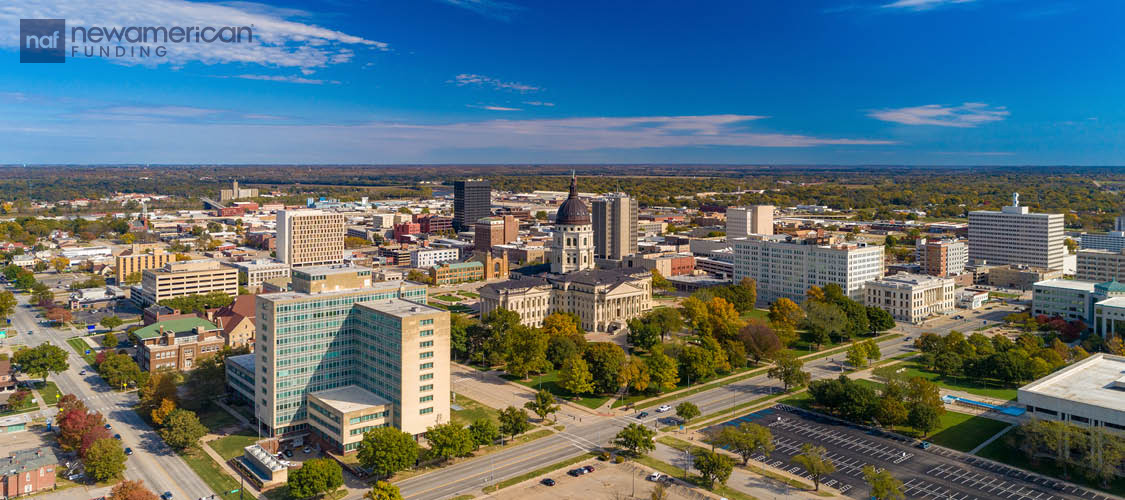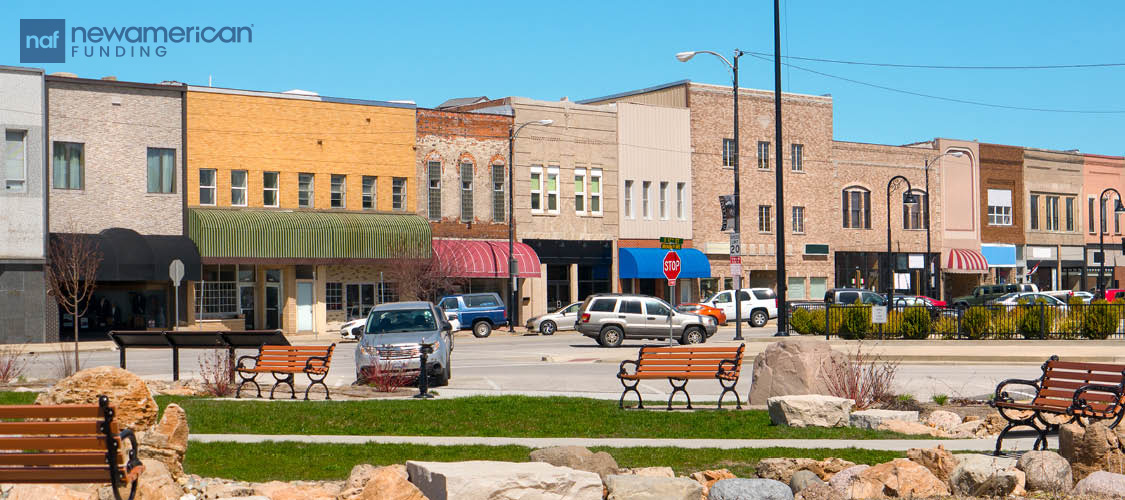Homebuyers
Ready for a Change? These Cities Will Pay You to Move There
November 12, 2024
How would you like to get paid to move? It’s not as far-fetched as it may seem.
In fact, while home and rental prices may be high across much of the nation, there are some cities that will actually pay remote workers to live there. Seriously.
Many of these programs offer skilled workers financial incentives, monetary help for buying or renting a home, and perks like free coworking space memberships. In exchange, these workers help these communities boost their local economies and grow.
That may make it a win-win for both the cities and the people who move there.
"The experience was transformative,” said Brian Futral, 37, founder of The Marketing Maven. He relocated for the Tulsa Remote program five years ago from Denver. “Living in a smaller city gave me the opportunity to slow down and focus on the creative parts of my role, without the distractions of a larger, faster-paced city.”
Those tempted by the financial incentives should read through each program’s eligibility requirements carefully. They often have rules about how long you need to live in the area, what type of job you must have, and how much you need to earn annually.
"I’d absolutely recommend programs like this to anyone looking to shake things up, both professionally and personally,” said Futral.
Let's dive into some of the places where you could get paid to live.
Tulsa, Okla.

Through the Tulsa Remote program, remote workers can receive a $10,000 bonus to move there.
Renters receive monthly payments to help with rent, while homebuyers can choose between monthly disbursements or a lump sum after purchasing a house.
The program goes beyond financial incentives, providing a 36-month membership at 36 Degrees North, a coworking space for remote workers. Additionally, Tulsa Remote offers networking events and wellness perks.
"The program connected me with co-working spaces and a vibrant community of remote workers, which helped me network both professionally and socially," said Futral.
It even offers a hosted visit to explore the city before making the move.
Interested applicants must have full-time, remote jobs outside of Oklahoma and live outside of the state for a full year before submitting an application.
Topeka, Kan.

The Choose Topeka program was launched in 2019 to encourage professionals to move to Topeka and Shawnee Counties in Kansas.
Participants can receive up to $15,000 to help with moving expenses, buying a home, or other relocation costs. The program works with local employers, who match the incentive funds when applicants secure a full-time job with one of their companies.
This program isn't just for new residents, either. It also welcomes former Topeka residents who want to return to the area and military personnel transitioning to civilian life.
To qualify, participants need to commit to living in Topeka for at least one year and have a job with a minimum salary of $50,000.
Newton, Iowa
The Get to Know Newton program in Newton, Iowa offers financial incentives to encourage home construction and attract new residents. The community is located just outside Des Moines, offering small-town charm with easy access to the state’s capital.
Homebuyers can receive a $10,000 cash bonus when purchasing a newly built single-family home valued at $240,000 or more, excluding land value.
In addition to the cash incentive, buyers receive a welcome package with discounts from local businesses that is worth about $2,500. The program applies to homes starting construction in Newton through 2026.
Mattoon, Ill.

Remote workers can receive $5,000 to move to Mattoon, Ill. through the Move to Mattoon program. Mattoon is located in central Illinois, about 180 miles south of Chicago and 130 miles northeast of St. Louis.
The relocation package includes additional perks like free memberships to a coworking space and fitness centers, adding up to a total value of about $12,000.
The program aims to attract new residents by offering a more affordable and close-knit community compared to big-city living. Additionally, Mattoon is developing incentives for skilled manufacturing workers, though details are still to come.
To qualify, applicants must live more than 100 miles away from Mattoon, commit to staying in the city for at least two years, and have an annual income of over $45,000. Self-employed and gig workers are not eligible.
The Shoals, Ala.

The Remote Shoals program may be a good fit for remote workers who enjoy outdoor adventures and a rich cultural history.
Located in northwest Alabama along the Tennessee River, the Shoals region includes Muscle Shoals, Florence, Sheffield, and Tuscumbia. It is also close to big cities like Birmingham, Nashville, and Memphis. It’s known for its music history, with stars like Aretha Franklin having recorded songs there.
Remote workers who relocate to the Shoals can receive $10,000, paid out in installments over the first year.
To qualify for the program, applicants must earn at least $52,000 per year, be employed as a full-time remote worker or independent contractor and commit to relocating to the Shoals within six months.
West Virginia
The Ascend West Virginia program may appeal to remote workers who love the outdoors.
The program provides up to $12,000 in cash to help with relocation—plus access to free outdoor gear like kayaks and bikes. Participants also get complimentary memberships to local coworking spaces.
To qualify, applicants must be full-time remote workers and agree to move to West Virginia within six months of being accepted. The program requires participants to live in the state for at least two years.
Applications are reviewed on a rolling basis, and once accepted, participants can start planning their move to take advantage of the incentives.







 Smart Moves Start Here.
Smart Moves Start Here.